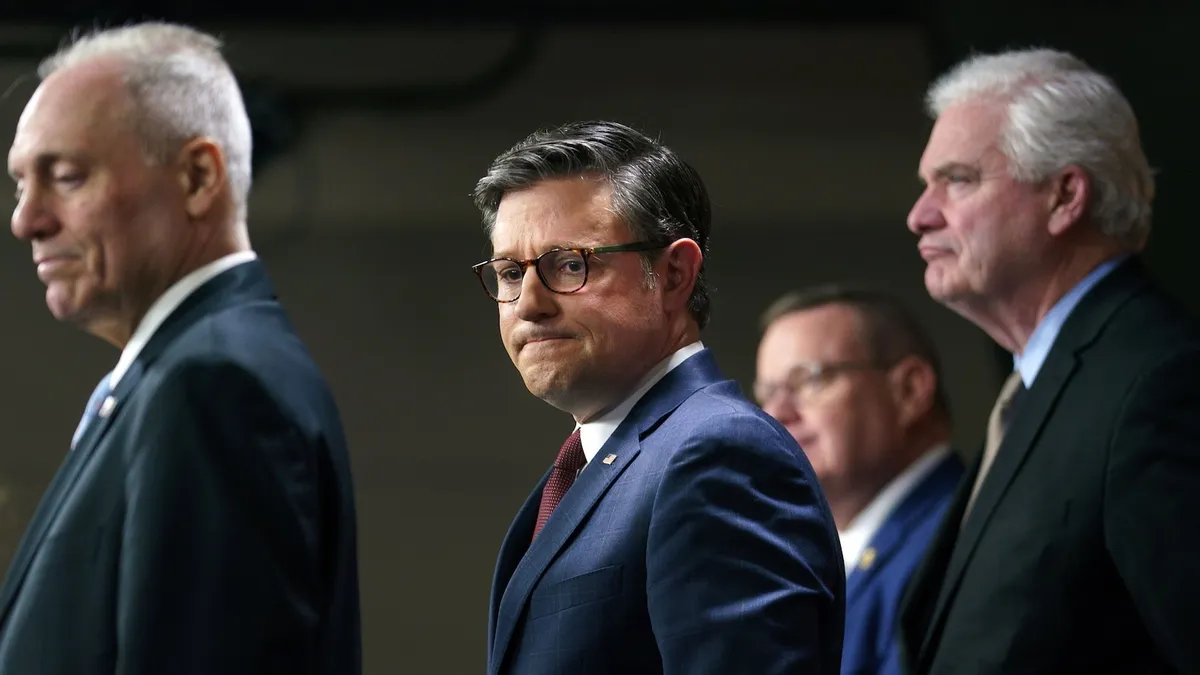
Following a chaotic day, the House successfully passed the Republican budget resolution on Tuesday, marking a significant advance for President Donald Trump's legislative agenda. The resolution passed by a narrow vote of 217-215, delivering a crucial win for Speaker Mike Johnson, who navigated the process with a finely balanced GOP majority.
Republican leaders managed to persuade Reps. Tim Burchett, Warren Davidson, and Victoria Spartz, who were initially resistant. However, Rep. Thomas Massie stood firm as the sole Republican opposing the resolution. The GOP could only afford to lose one vote, highlighting the delicacy of the situation.
"A lot of work yet to be done, but we're going to celebrate tonight, and we'll roll up our sleeves and get right back at it in the morning," Johnson said post-vote.
The outcome was uncertain until late Tuesday, with at least four Republican members initially against the measure. Speaker Mike Johnson had limited room for defection. Efforts to secure votes extended the first vote for over an hour, inciting Democratic protests.
In a dramatic turn, GOP leaders temporarily pulled the budget resolution before rescheduling it, calling all House members back to the chamber. Democrats rallied their members, with Rep. Brittany Petterson attending with her newborn and Rep. Kevin Mullin arriving with a walker due to a medical condition.
Democratic leaders accused Johnson of attempting to "jam" the budget resolution through after previous assurances of no additional votes that night. "We are trying to work through concerns and issues," Johnson mentioned, emphasizing the complex nature of the negotiations.
The resolution now moves to the Senate, where its future remains uncertain. Senate Majority Leader John Thune proposes a different strategy, focusing on defense and border security spending, followed by tax cuts and the debt ceiling. Despite President Trump's endorsement of the House Republican blueprint, the Senate's approach could vary.
Republicans aim to employ reconciliation, allowing passage with a simple majority. However, both chambers must agree on the same resolution for this tactic to succeed. "This is the first important step in opening up the reconciliation process," Johnson stated, emphasizing the commitment to the America First agenda.
President Trump exerted pressure on undecided GOP members, despite later distancing himself from direct involvement. "They know what I want," he remarked, while signing executive orders.
House Majority Leader Steve Scalise defended the budget against claims of deep Medicaid cuts, asserting, "This bill doesn't even mention the word 'Medicaid' a single time." However, the blueprint aims for at least $2 trillion in mandatory federal spending cuts, affecting programs like Social Security and Medicare.
GOP leaders worked diligently to address concerns. Rep. Massie, predicting increased deficits, voted against the measure. Meanwhile, undecided Republicans like New York Rep. Nicole Malliotakis and Georgia Rep. Rich McCormick expressed cautious optimism, seeking clarity on spending cuts.
House Democrats, led by Minority Leader Hakeem Jeffries, united in opposition, labeling the plan as an assault on democracy. "House Democrats will not provide a single vote to this reckless Republican budget," Jeffries declared, citing potential devastation to Medicaid, families, and the economy.
The GOP budget plan, according to Jeffries, represents the largest Medicaid cut in American history, threatening the well-being of various sectors and asserting that "everything we care about is under assault."